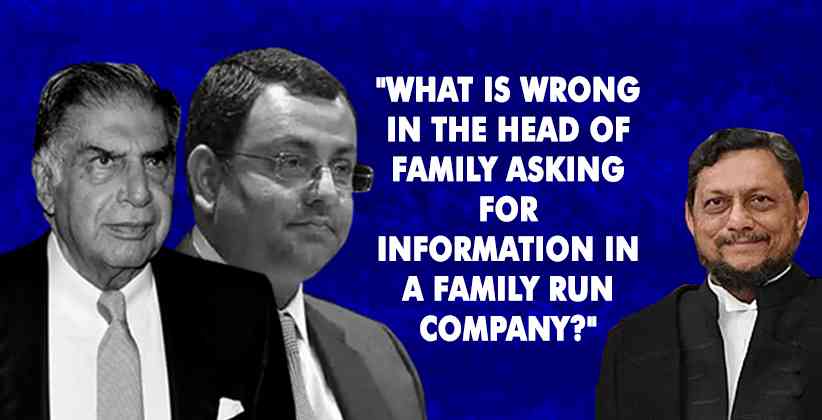The lawyers appearing in the case between Tata Sons Private Ltd and Cyrus Mistry in the Supreme Court expressed that they have no objection to the Chief Justice of India hearing the case merely because his son is appearing for a subsidiary of Shapoorji Pallonji Group in a case in Mumbai.
On the fourth day of the hearing, Senior Advocate Sundaram continued to refer to the Articles of Association of Tata Sons to argue that they were used to 'oppress' the minority shareholders. "Our experience of private companies is that there is a 'pater familias' figure acting like a head of family, asking for information from others." In lighter vein, the CJI continued, "This might be happening with the SPG group of companies too".
"What is wrong in the head of family asking for information in a family run company?", CJI asked. Sundaram submitted that Tata Sons is a company with thousands of shareholders. If the company was meant to be family run, it should have remained that way and should not have gone public, he added. The company cannot function in this fashion.
The problem is when they claim that they have absolute right to run the company under the Articles. "You cannot use the Articles in a manner where you say that you have an absolute right over the affairs", Sundaram continued. He argued that the the NCLAT can invoke powers under Sections 241 and 242 of the Companies Act 2013 only if it finds that there are just and equitable reasons to wind up the company. Mere differences of opinions between the minority and majority shareholders regarding various company decisions cannot be regarded as 'opperssion' or 'mismanagement'.
That amounts to taking away the rights of the shareholders. Also, Mistry's term under the contract had expired in 2017 itself and therefore the reinstatement order was wholly untenable, he continued.
Tata had given assurance in court that they do not propose to take any steps invoking powers under Article 75 of the Articles of Association against the minority shareholders of Shapoorji Pallonji group. In the appeal, Tata Sons says that the NCLAT judgment sets a 'dangerous legal precedent' and is a 'blow to corporate democracy'.








